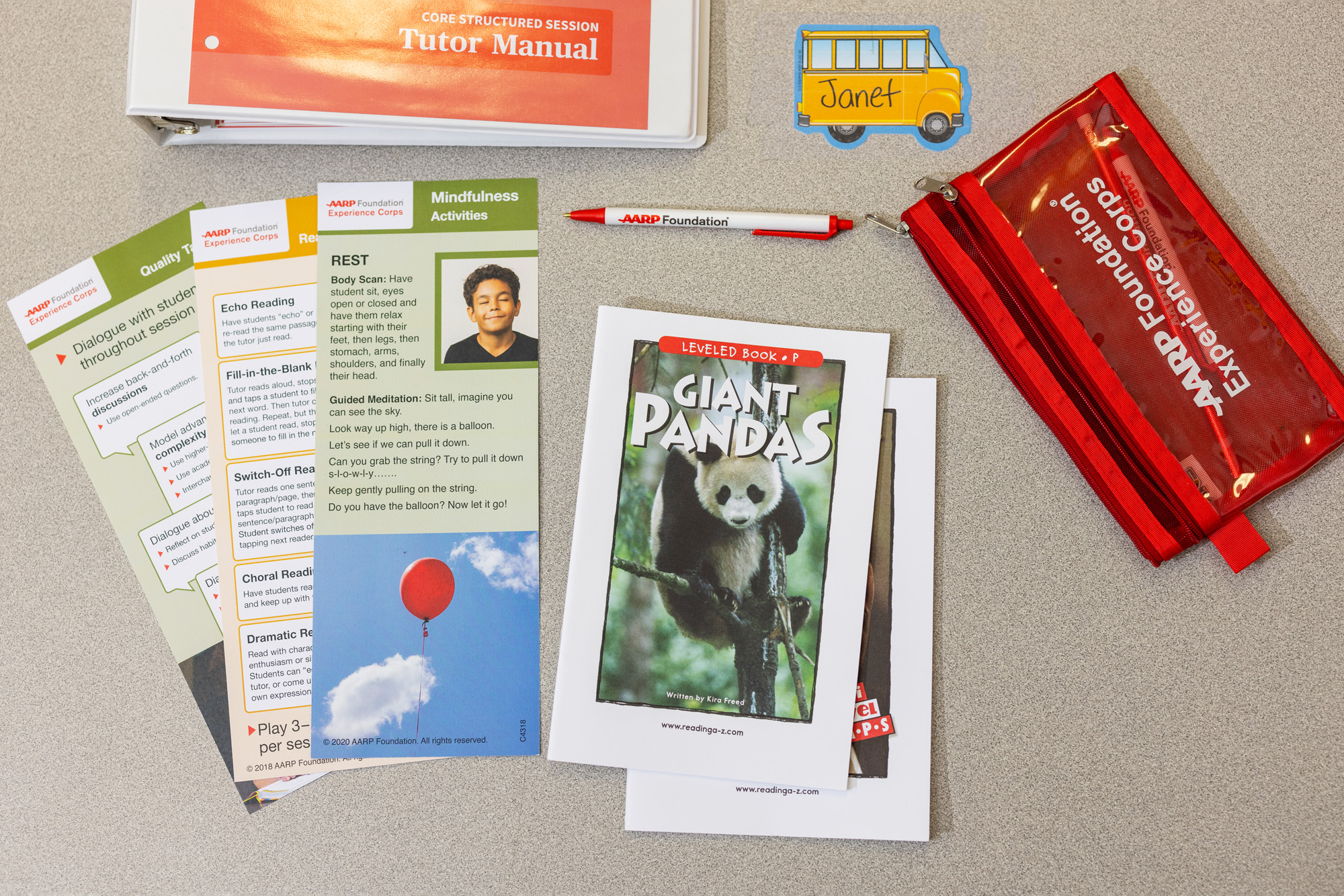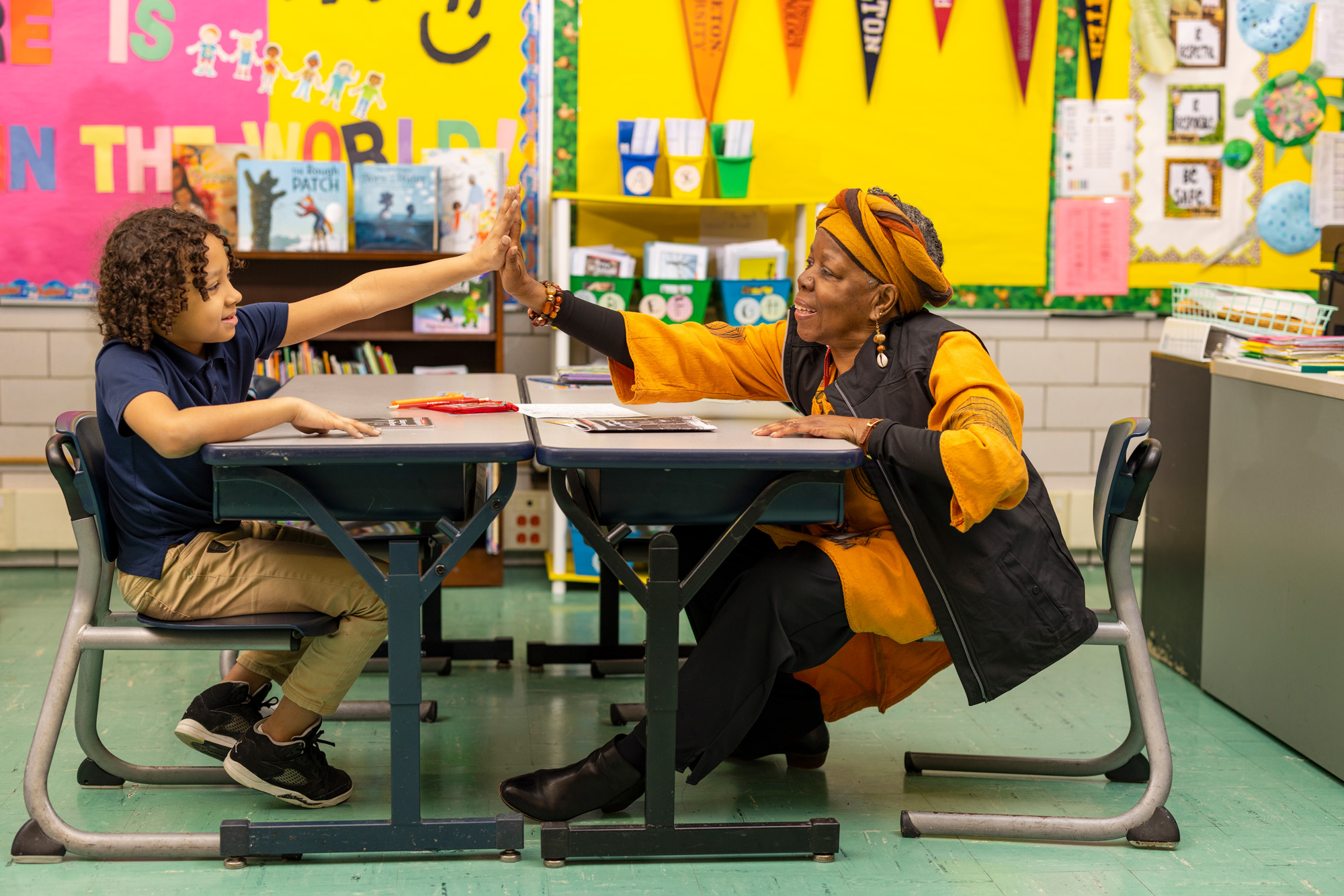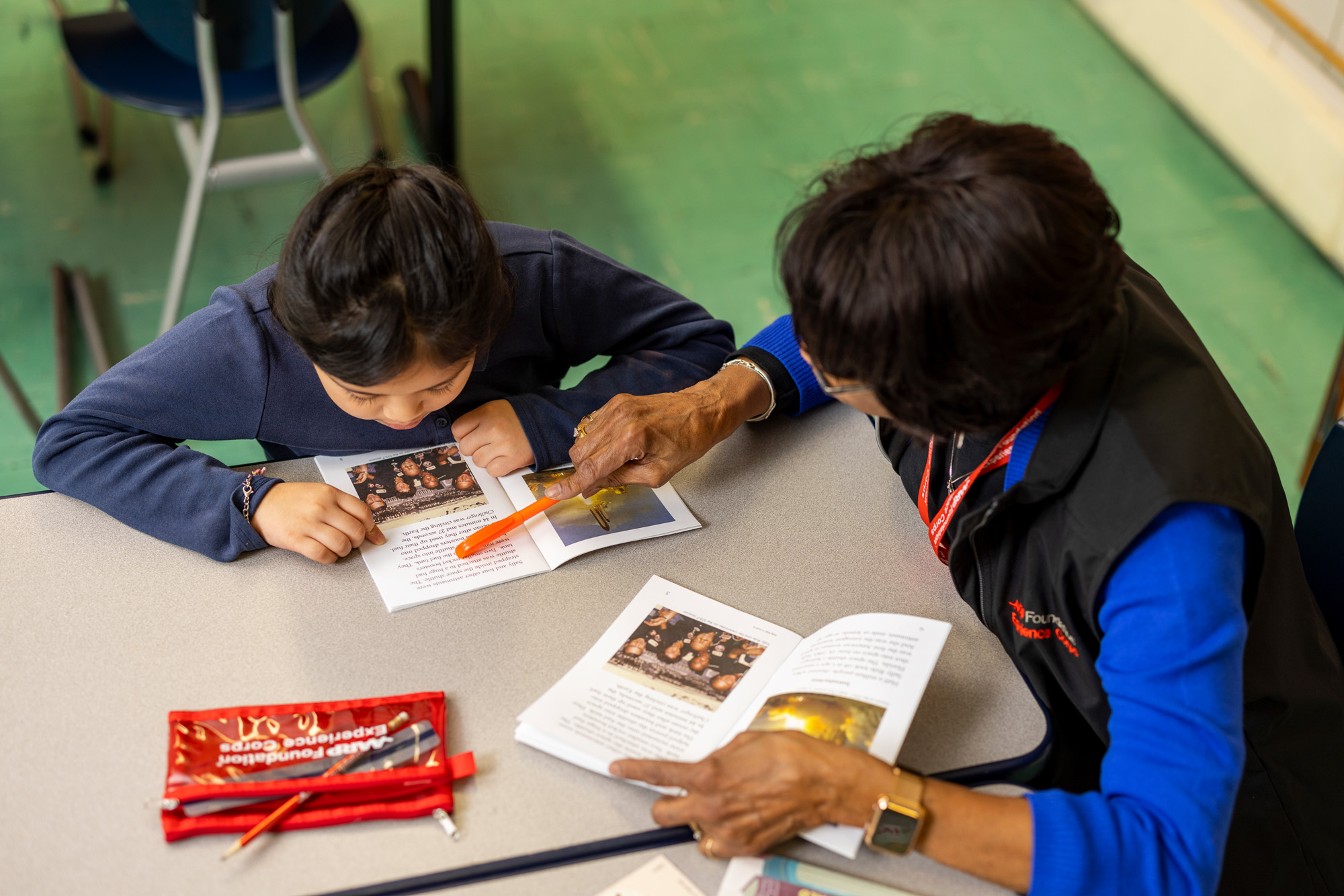Back to School: Becoming an Experience Corps Volunteer
by Kay Patterson
At 68 years old, I’m going back to grade school. I’m an AARP Foundation Experience Corps volunteer.
On the first day, I’m an observer. My kids, as I already am calling them, are a challenge, and Ms. Kelly is ahead of them every step of the way. She’s an occasional substitute for their teacher, who is on a prolonged absence.
Whiteboard marker in hand, she roves the front of the room, firm but unflinchingly kind and encouraging, no matter what.
“Jamal , I need you to sit down. You can get onto the participating list if you’re sitting down.”
Jamal considers complying and she catches him in the act. “Come on,” she says quietly. “You can fix this.” If he does, he earns his way into a game of Mum Ball.
But she doesn’t wait for him to decide. She moves on.
“Erique, have you finished your paper?” He shows the finished product.
“Good!” He’s made it to the list. Mum Ball participants get to sit on top of their desks passing a foam ball by eye contact alone. Speaking is against the rules.
Amara is up front, a short girl with an impudent smile and a quick arm, which she raises in threat to Daniel sitting behind her.
“Amara, please sit down.” Ms. Kelly’s tone is calm, kind. Again she avoids a test of wills, instead moving between the two desks and addressing Daniel.
“Don’t engage, Daniel. Don’t engage. Who has the answer to the math question?”
Amara continues to poke at Daniel.
“Ok, I’m taking your name off the board,” Ms. Kelly says evenly, just giving information, while she erases Amara’s name. Amara wails.
“You can fix this. Stop now.”
Amara doesn’t and Ms. Kelly resumes her position between potential combatants, quietly insisting that the rest of the class stay focused on the learning task.
While she teaches the children, she also teaches me. Next week three small groups from this class will meet with me twice a week for 30 minutes of reading.
After school, I take the seven-minute drive to my home that has never seen children or grandchildren and remind myself why I was so drawn to this particular volunteer experience.
It started one morning this summer. As usual, I was drinking coffee and reading the paper when my eye landed on the story about a new reading mentorship program starting in the fall: seniors working in urban schools in my hometown of Buffalo, grades K-3.
Before that moment, I’d mused about finding a volunteer activity. That thought went from vague to specific in a big hurry.
I live in a poor neighborhood and everyday see kids who are struggling. We talk. They love to help me walk the dog and sometimes pull a weed or two. Can they read? Chances are some have trouble. This is personal to me Reading is pivotal to children’s ability to grow into thriving adults, and thriving adults are pivotal to my city’s re-emergence. I also have an adult niece who repeated third grade – after struggling in each earlier grade – because she had trouble reading.
The response to the call for volunteers was intense, so I was pleased to be chosen. During the two-day training, we learned that the program, which was already up and running in several cities, came about in response to data showing that children in pre-school reading-readiness programs make great gains but frequently lose those gains by third grade. It’s a puzzle, figuring out how to stop that loss. One small piece is having more adults like me reading to and with them.
I indulge in a little fantasy of myself with a quiet, maybe even shy, group of children who come out of their reading shells and love books after a year with Ms. Kay.
After one day observing, I know the truth is much more complex, but those kids are already charming me and I’m ready for action.







